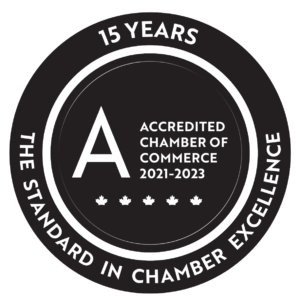Author: Canadian Western Bank
Four reasons to separate your personal and business banking
John Butler, AVP & Market Lead for CWB Markham and Juliana Cline, Cash Management Relationship Manager with CWB Mississauga, break down the importance of untangling your business and personal finances.
1. Position yourself better for lending applications (personal and business)
“It’s incredibly more difficult to apply for a business loan when it’s complicated to interpret and understand your finances. That can potentially limit your lending options and who’s willing to work with you,” says Butler.
“And it’s not just commercial lending where intermingling your accounts can create a hitch”, explains Cline. Say you’re applying for a home mortgage. A common document you’ll be asked to produce is a Letter of Employment – but you won’t have one if you’re self-employed, and so the bank will ask to see your business’ financial statements as an alternative.
“If you’ve been running everything through your personal accounts it’s tough to pull all that data apart,” says Cline. “It can be particularly challenging for businesses that operate with cash or e-transfers to separate those from personal transactions. Challenges like this could be the difference between a bank wanting to do the mortgage with you or not.”
2. Simplify your bookkeeping and make tax time easier. “In general, it makes it a lot easier to keep track of things. And it should be no surprise that having personal and business transactions neatly separated makes tax time go much smoother,” says Butler. Adds Cline: “If you’re paying yourself from the business, you’ll also want a clean record of those funds going from your business account to your personal account for personal income tax purposes.”
3. Make your business look more professional. “You look more legitimate when you can issue a cheque with your business name on it and you’re taking deposits into a business account,” says Cline.
“Legitimacy is a big piece for the bank to feel confident in doing business with you. We need to clearly understand how and where you accept payment from your customers and how and where you pay for your expenses.”
It’s really to your benefit to make it easy for people to understand your business finances, adds Butler. “If someone is evaluating your business – like your banker, or a supplier who’s looking at extending you credit, or someone who’s interested in acquiring your business – they need a clear line of sight to your bottom line and cash flow. You don’t want people to have to decipher and make assumptions about your financials.”
4. Get a clearer picture of how your business is doing. You want to keep a strong pulse on the health of your business – and that’s difficult to do if everything’s all combined in one account. “If you don’t have a good view on your cash flow, how can you gauge your performance against your metrics – or even properly set those metrics?” says Cline. She also notes that clean financial statements will better support your business and financial planning.
Learn more:
Visit cwbank.com/blog for more insights from CWB’s business banking experts.




